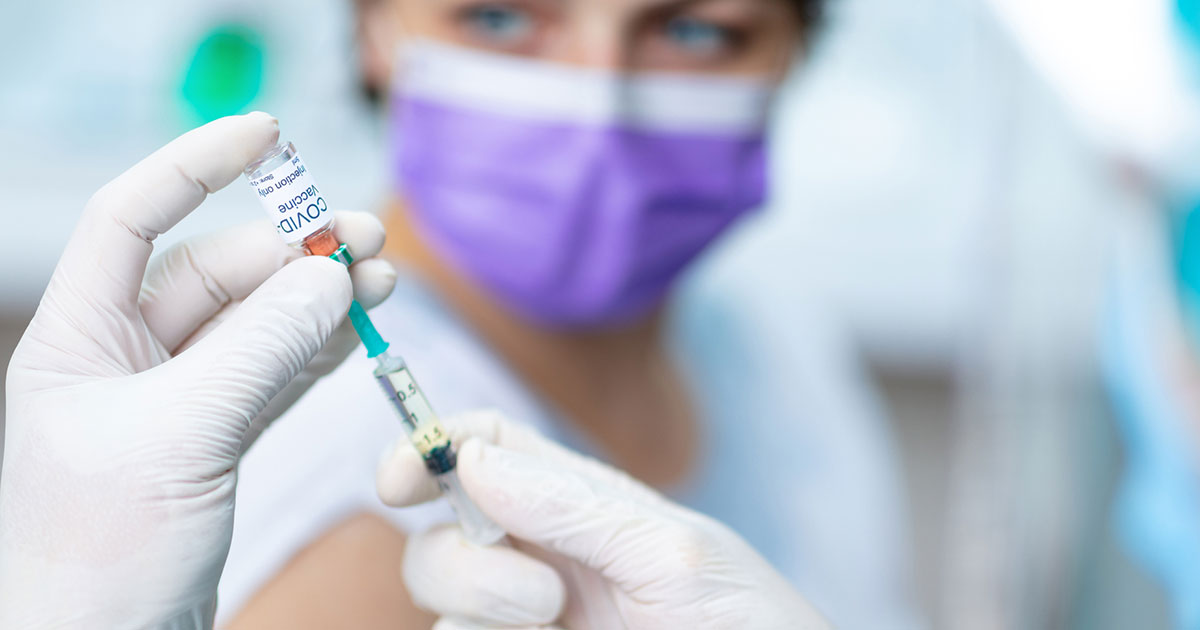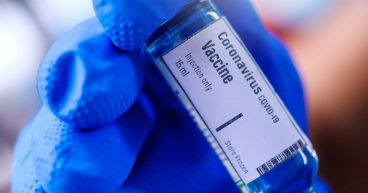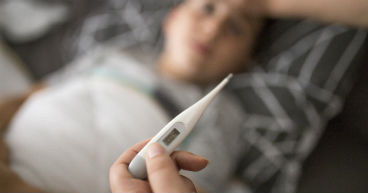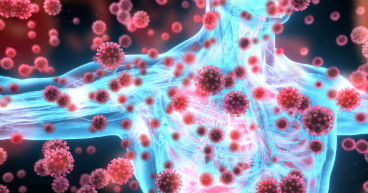
Managing side effects is a fact of life for many cancer patients. The disease and its treatment may bring on a number of common reactions, including nausea, fatigue and pain. So, when a patient hears about potential side effects from the COVID-19 vaccine, or other inoculations, such as the flu vaccine, should they be concerned about having to deal with additional side effects? Yes, says Maurie Markman, MD, President of Medicine & Science at Cancer Treatment Centers of America® (CTCA). But that should not discourage most cancer patients from getting the shots.
“If you are a cancer patient and your physician recommends you receive the vaccine, you should not be discouraged by possible side effects,” Dr. Markman says. “The benefits of vaccination far exceed any potential, limited, short-term risks.”
Have questions about COVID-19 and cancer? Click here to chat with an expert.
What to expect
If you get a COVID-19 vaccine, you should expect to experience side effects, but not everyone does. Effects of a vaccine may vary widely with each person. But the U.S. Centers for Disease Control and Prevention (CDC) says that the COVID-19 vaccine may “affect your ability to do daily activities.” Common reported side effects from the vaccine include:
- Pain or swelling at the injection site
- Fever
- Chills
- Fatigue
- Headache
Experiencing flu-like symptoms after a vaccine may be a good sign that the vaccine is working. Symptoms are often an indication that the immune system has been alerted to the presence of a virus or has been given instructions to start making antibodies.
"I had chills, nausea, a headache, some fatigue, and that just kind of got worse and worse as the night went on," Kristen Choi, a UCLA nursing professor who participated in a clinical trial, tells the KGO television station in San Francisco. Dr. Judson Brandeis, a urologist in San Ramon, California, told KGO he "had a little discomfort in my shoulder for two or three days. Other than that, … I was totally fine.”
Choi said her symptoms, including a high fever, kicked in after her second injection. Current COVID-19 vaccines require two injections to be effective. In some cases, patients may experience side effects after the first injection. The CDC says those patients should still get their second injection unless their physician recommends otherwise. People with a history of anaphylaxis or other severe allergic reactions should consult their doctor before getting inoculated. And cancer patients should check with their oncologist before getting any vaccine.
How do vaccines work?
Most traditional vaccines work by training the immune system to recognize harmful viruses and attack them. They do this by introducing an attenuated, or weakened, version of a virus or an inactive virus that gives the immune system just enough information to recognize more dangerous versions, should the patient get infected.
Two of the COVID-19 vaccines—the Moderna and Pfizer versions—do not work that way. Instead, they use messenger ribonucleic acid (mRNA) to teach cells to produce defenses against the coronavirus that causes the COVID-19 infection. Messenger RNA is one of several forms of RNA, the worker bees that support deoxyribonucleic acid (DNA). DNA uses RNA to send instructions to cells to perform different tasks. The new mRNA vaccines are designed to help the immune system recognize the spike proteins on the surfaces of the coronavirus cells that cause the infection.
Many cancer patients cannot receive live virus vaccines because the viruses used—even though they are weakened—may still infect patients with compromised immune systems. Because the two COVID-19 vaccines use mRNA and not a live virus, they may be better suited for cancer patients, says Mashiul Chowdhury, MD, Infectious Disease Program Specialist at CTCA®.
“Given the characteristics of these vaccines, I don’t see any reason why a cancer patient should not get vaccinated,” Dr. Chowdhury says. But, he adds, patients who are on cancer therapy that suppresses the immune system may not be candidates for the vaccine.
Why are cancer patients at higher risk for COVID-19?
Certain cancers and cancer treatments can seriously reduce a patient’s ability to fight infection. Blood cancers, such as leukemia and lymphoma, may affect the body’s ability to produce healthy immune cells. And some treatments, especially chemotherapy, may kill immune cells. That may make these patients more susceptible to being sickened by COVID-19.
For these reasons, and many others, it’s important for cancer patients take steps to reduce their risk of infection. That includes getting vaccinated. Patients who don’t get vaccines may get seriously ill if they catch the flu or develop measles. Cancer patients also are at higher risk of having a more severe illness if infected by the COVID-19 virus.
It’s uncertain when the COVID-19 vaccine will be available to all cancer patients and their families. But patients need to stay vigilant even if they and their loved ones get their shots. There still are many questions about how effective the vaccine will be in cancer patients and how long the immunity it provides will last. Still, Dr. Chowdhury urges patients to do their research and get their vaccines when available.
“Be a leader of your family, community, society, and give the right information,” Dr. Chowdhury says. “More than 300,000 people have died already, and 16 million people have been infected. This is science. This is not a myth. COVID-19 is real, and we need to end this pandemic as soon as possible. Unless we all get vaccinated, we can’t do that.”
Learn more about the COVID-19 vaccine and its impact on cancer patients.



